The Cost of Opportunity: Standing at the Intersection of the Avenues of Personal and Political
By Travis Knoll, Ph.D. student in History

While academics studying themselves may seem like a cliché, the project shed a down-to-earth light on the functioning higher education systems and the human faces that inhabit and fight to enter them. At the same time, it helped develop my dissertation, which deals with the intersection of state education policy, social movements, inequality, and religion. Bass Connections has gifted me with mentors and peers (faculty, graduate, and undergraduate students), resources, and the luxury of time to experiment, connect, and learn through field experience.
This project emerged from my adviser’s connections in the Baixada Fluminense. These connections translated into research partnerships because of Bass Connections in Education & Human Development’s generous funding, jointly with the Duke Brazil Initiative and Franklin Humanities Institute’s Global Brazil Lab, of the “Cost of Opportunity” project studying higher education in the region.
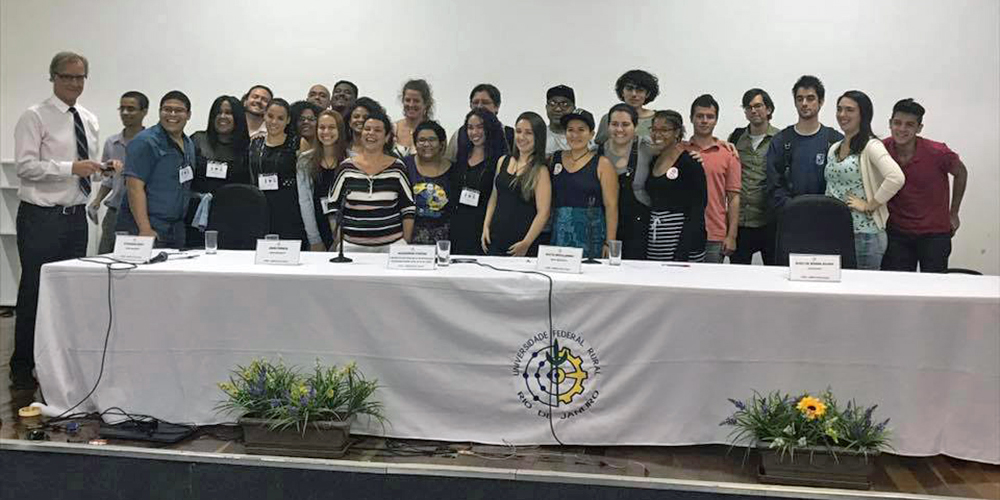
During the summer of 2016 (funded by Duke’s Graduate Student Training Enhancement Grant), my adviser urged me to use my time as an intern at the US Embassy in Brasilia to build project and personal research connections with the capital’s academic and educationally-focused congressional leaders. My task was two-fold.
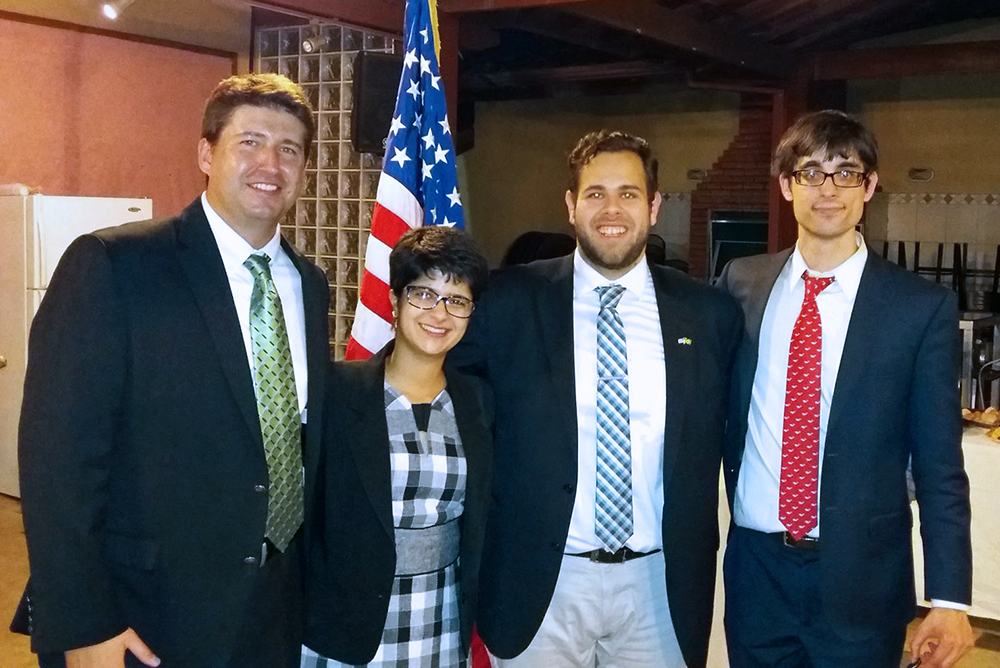
Second, I was to put that history of militancy into dialogue with the continuing public policy challenges faced by undergraduate and graduate students at our partner institution, the Federal Rural University of Rio de Janeiro (UFRRJ).
Through my time in Brasilia, I networked with key congressional aides in the lower house in addition to academics at the Chamber of Deputies’ research center. Presenting in the Chamber of Deputies research center, CEFOR, meeting headline-making legislators, and getting to know legendary human rights and black movement leaders proved both intimidating and rewarding. I learned to negotiate a world that until recently I had had almost no contact with, a lack which showed up in my often-nervous conversations with these high-ranking officials.
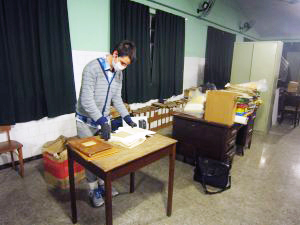
During that time, I presented on the judges’ legal opinions (votos) in the 2012 decision upholding racial quotas at the University of Brasilia, explaining how judges across the ideological spectrum justified racial affirmative action policies through juridical discourses of difference as applied to gender affirmative action policies already in force. An article resulted, which I published in a December 2017 edition of E-Legis, the peer-reviewed journal run by the Chamber of Deputies.
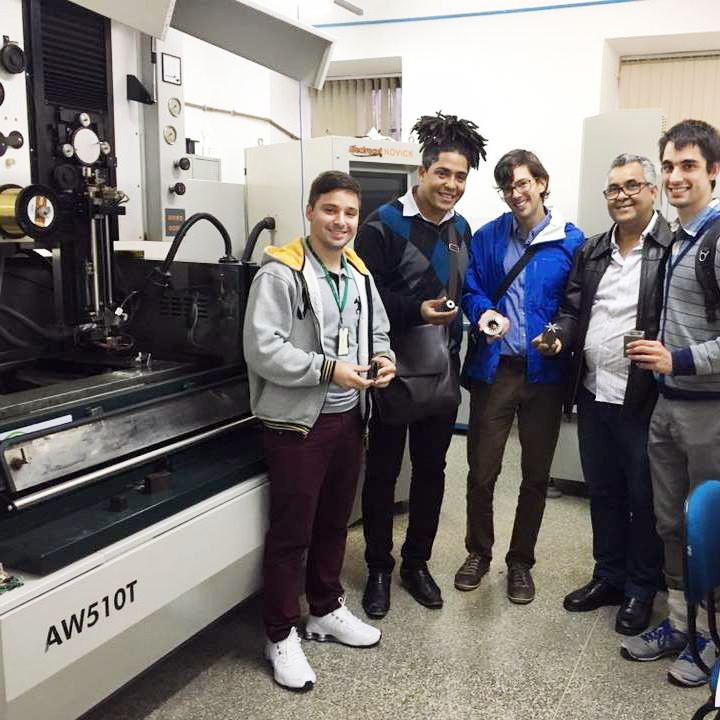
This interdisciplinary experience combined with the excellent methodological advice of my dissertation proposal committee, helped me win a Kenan Institute for Ethics Religion and Public Life Graduate Scholarship, a Bass Connections Follow-on Student Research Award and a 2018-2019 Social Science Research Council’s Mellon International Dissertation Research Fellowship.
Bass Connections has honed my skills in management, service, and mentorship. I served on the Bass Connections Student Advisory Council as project evaluation team leader. I also spearheaded a successful renewal for the Cost of Opportunity project’s third year through Bass Connections (2018-2019), shifting the project from a focus on networking and ethnography to quantitative social scientific production.
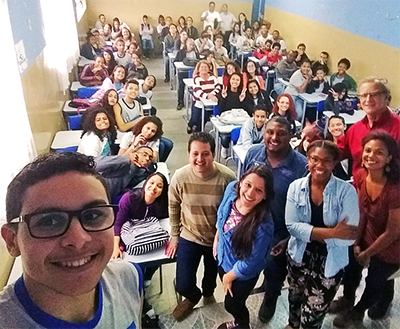
I will also treasure our Sunday afternoon Bass Connections classes and the companionship forged through the often late-night organizing of our Educate to Liberate conference (on this count I especially thank CLACS associate director Natalie Hartman for assisting with so many of the logistics, from plane tickets, to hotels, to honorarium payments).
Watching other undergraduates and graduates grow, produce, and continue to better understand the meaning and price of a university education has transformed my Duke experience, my research, and my professional trajectory.
Learn More
- Read about the 2017-18 Bass Connections project, The Cost of Opportunity? Higher Education in the Baixada Fluminense, and see plans for the 2018-19 project.
- Explore the Bass Connections theme of Education & Human Development.
- Find out how to get involved in Bass Connections.
Photos courtesy of Travis Knoll